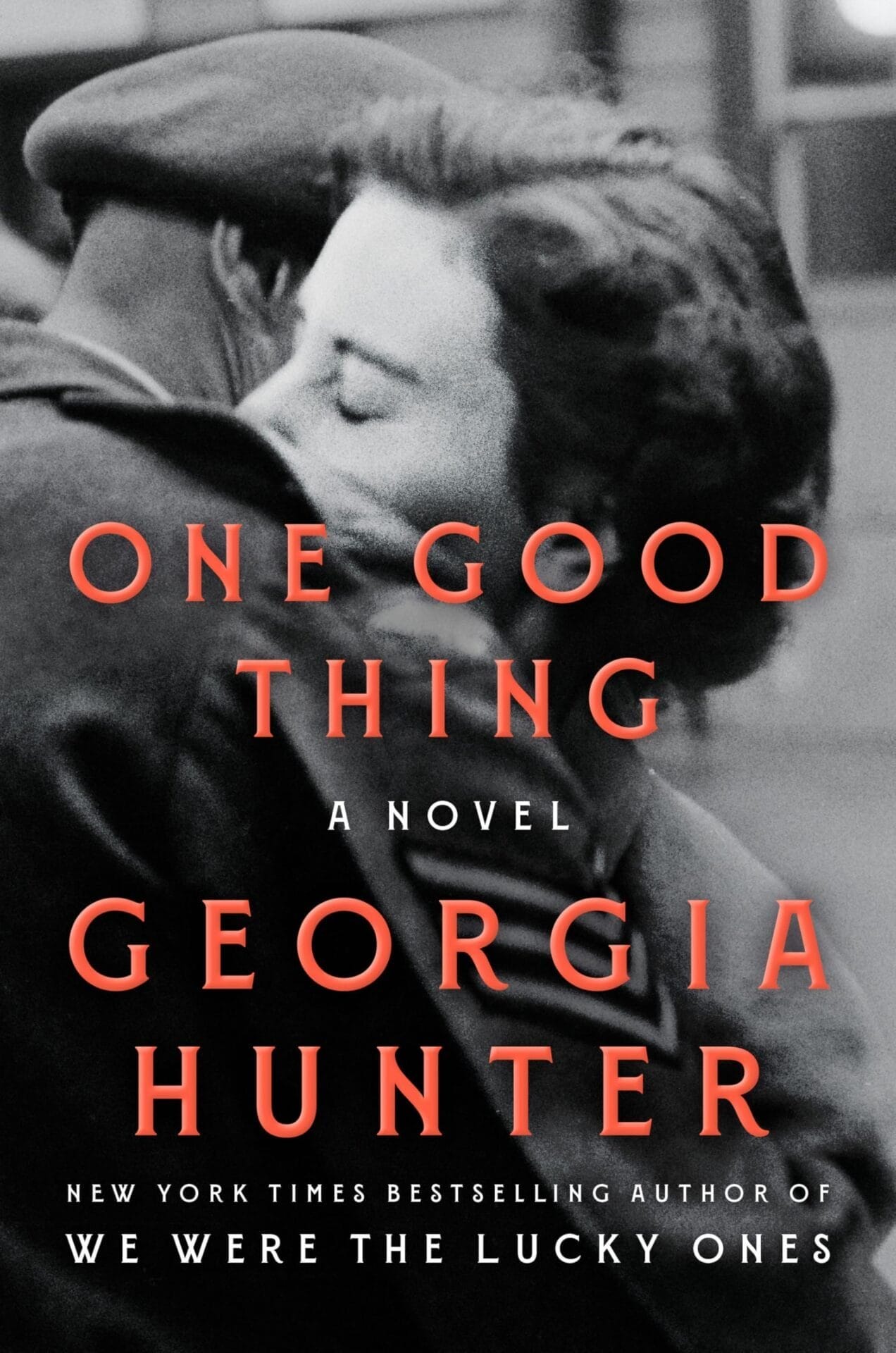

One Good Thing
From the New York Times–bestselling author of We Were the Lucky Ones, an unforgettable story of hardship and hope, courage and resilience, that follows one young woman’s journey through war-torn Italy
1940, Emilia Romagna. Lili and Esti have been best friends since meeting at the University of Ferrara; when Esti’s son Theo is born, they become as close as sisters. There is a war being fought across borders, and in Italy, Mussolini’s Racial Laws have deemed Lili and Esti descendants of an ‘inferior’ Jewish race, but life somehow goes on—until Germany invades northern Italy, and the friends find themselves in occupied territory
Esti, older and fiercely self-assured, convinces Lili to flee first to a villa in the countryside to help hide a group of young war orphans, then to a convent in Florence, where they pose as nuns and forge false identification papers for the Underground. When disaster strikes at the convent, a critically wounded Esti asks Lili to take a much bigger step: To go on the run with Theo. Protect him while Esti can’t.
Terrified to travel on her own, Lili sets out on an epic journey south toward Allied territory, through Nazi-occupied villages and bombed-out cities, doing everything she can to keep Theo safe.
A remarkable tale of friendship, motherhood, and survival,One Good Thing is a tender reminder that love for another person, even amidst darkness and uncertainty, can be reason to keep going.
My thoughts:
I really don’t know why I shy away from historical fiction as much as I do. Every time I pick one up, I end up completely swept away, emotionally wrecked, and vowing to read more books in the genre—and then, of course, I don’t, but that’s a problem I’ll keep trying to work on.
What really sets this book apart from other WWII stories I’ve read is whose story the author chooses to tell. So many WWII novels center on the courageous “good Christians” helping from the sidelines (which, okay, valid and often moving), but this one plants us squarely in the shoes of Jewish women who were living the terror firsthand. And that shift in perspective makes a world of difference. It’s harrowing. It’s urgent. It’s honest.
The beating heart of the novel is the friendship between Lili and Esti, two Jewish women who meet at the University of Ferrara and become inseparable. Their bond feels lived-in, messy, and filled with the kind of love that anchors you when the world is falling apart. War has broken out, but the women are hopeful it will end before it touches them.
And then everything changes. Italy, already a tense place for Jews under Mussolini’s Racial Laws, becomes exponentially more dangerous after the German occupation of the north. From here, the novel takes on a breathless quality, like you’re constantly waiting for the knock at the door or the sound of boots in the street. Esti and Lili hide children in a countryside villa, they forge papers in a Florence convent posing as nuns, and then, after a tragic turn that leaves Esti wounded and unable to flee, Esti begs Lili to take Theo and run.
What follows is a journey of survival across Nazi-occupied Italy, with Lili risking everything to protect Theo. She’s terrified. She’s in over her head. But she never stops moving. And that’s what makes this novel so powerful—Hunter captures not just the grand sweep of war but the micro-moments of bravery, hope, and tiny choices that add up to a lifetime of resilience.
I also really liked the complexity of the characters and how real they felt. Lili isn’t some war hero with nerves of steel—she doubts herself constantly. She makes mistakes. She feels selfish and scared. But she keeps pushing forward, especially for Theo. There’s something incredibly moving about watching someone rise to a challenge they never asked for, especially when it’s done out of a commitment to a friend.
The writing is vivid and cinematic without being overindulgent. You can feel the dirt of the roads, the fear in Lili’s chest, the cool hush of the convent halls. Hunter did her homework, but she also knows how to keep the story intimate and emotionally driven, which makes it really hard to put this book down.
I also really appreciated how this one ended. I won’t spoil it, but I will say that it isn’t one of those perfectly polished, everything-works-out fairy tales. It’s more honest than that. More grounded, which is what these stories deserve. There’s hope, but there are still lingering questions, still goodness—still one good thing to hold onto (see what I did there?). And I think that’s the whole point.
All in all, this is a beautiful gut-punch of a novel about love, loyalty, and survival. If you’re like me and tend to avoid historical fiction until someone pushes it into your hands—consider this your push. It’s worth it. And then some. I’m so glad I took a chance on it.













